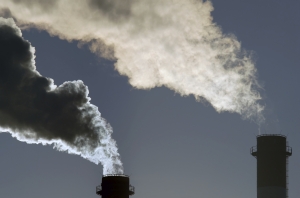While policymakers have commonly assumed that the cost of domestic emissions reductions is expensive, analysis indicates that there is in fact no shortage of low-cost emissions reductions in Australia, with companies potentially able to create significant volumes of “low-cost” domestic carbon credits at prices as low as $1-4, utilising the existing class of “efficiency” and “agriculture” Australian Carbon Credit Units (ACCUs).
Our latest Market Update, released today, presents our “ACCU Supply Cost Curve” for the Australian market, outlining our estimates for the total volume and cost of ACCUs over the next 7-10 years. Analysis modelled the cost and volume of abatement, in the form of Australian Carbon Credit Units (ACCUs), at various price points, in order to provide policymakers and market participants with a detailed understanding of the low-cost supply potential that already exists within Australia.
Unlike Marginal Abatement Cost (MAC) analysis, our ACCU Supply Cost Curve represents the cumulative number of ACCUs that could be created over the next 7-10 years at particular price ranges, rather than the marginal cost of abatement activities in specific years, e.g. 2020 or 2030 (as per earlier MAC research).
To view our ACCU Supply Cost Curve, please CLICK HERE >>
Findings indicate that 500 million ACCUs could be supplied into the Australian market at under $20, with potential for up to 300 million ACCUs to be supplied under $5, providing a cheap source of domestic supply to compete with international units.
The largest source of low-cost ACCU supply may be derived from energy efficiency activities, which may supply approximately 300 million ACCUs. Agricultural emissions avoidance activities may supply nearly 200 million more ACCUs. Domestic offsets could therefore be utilised to play a critical role in a future Australian compliance market, potentially providing a low-cost source of offsets, while driving environmental co-benefits.
Australian carbon credits cheaper with international prices
At $1-4, low-cost credits created in the Australian market could be cheaper than the EU ETS, where permits are trading at the equivalent of A$7.41 each.
Certified Emissions Reductions (CERs) under the United Nations Clean Development Mechanism (CDM) are currently trading at approximately A$0.60 , however following the Paris climate conference, the ongoing role of these units is highly uncertain, casting doubt over the use of these credits in any domestic capacity. Subsequently, the low price of CERs reflects the underlying political instability of the CDM market, with most international markets viewing these units as ‘junk’ rather than an opportunity to buy.
In comparison, regional offsets under the Verified Carbon Standard (VCS), used by Australian companies active in local carbon neutral schemes are currently trading at A$13.65, nearly triple the cost of the low cost Australian domestic credits identified.
Cheap Kyoto offsets, such as CERs, have become a contentious within the Coalition, with concern that relying on imported credits would direct Australian capital overseas, rather than support local carbon farming projects, and would put the fate of Australian policy in the hands of international lawmakers, such as the United Nations, or the European Parliament.
While international credits are still likely to play a role in any local market, the availability of low cost domestic credits may ‘buy time’ for policymakers to consider the role of international offsets, with the pressure to import credits mitigated by the availability of low-cost local credits. Subsequently, the lack of urgency to use international credits may help local policymakers by providing time for the local market to learn by doing before any international linkage is established, while enabling investment to flow into local activities, particularly for carbon farmers.
Cheap domestic credits may be a game changer for policy
The availability of large volumes of domestic ACCUs, at low prices, may provide Australian policymakers with significant flexibility in designing climate policy that is able to keep compliance costs low for business, while appealing to the environmental lobby’s desire for domestic action.
Critically, analysis identifies two clear ACCU price levels: those that require relatively low price support and those that require little to no price support.
This suggests that current policy, which attempts to capture both abatement types with a narrow price band, is likely to become increasingly inefficient. Projects that require price support are likely to be undermined by the very low prices of efficiency projects, while government purchasing will contract large windfalls to efficiency projects before accessing the next level of agricultural and sequestration projects.
Avoiding this pitfall will require a market that establishes differentiated ACCU demand for both “low” and “very low” cost ACCUs, whereby the two differing price levels could provide policymakers with flexibility to create a more cost-effective – and targeted – climate policy.
For example, very low-cost efficiency credits could be made accessible to emissions intensive trade exposed (EITE) companies facing a liability under the safeguard mechanism, while longer-term land-use projects could continue to be supported by the ERF purchasing.
This may provide much needed flexibility for businesses by ensuring the availability of low cost domestic offsets, while providing a pathway to Australia’s new post-2020 commitments.
To view our ACCU Supply Cost Curve, please CLICK HERE >>
ACCESS REPORT & UNDERLYING DATA
This report (PDF) and our underlying ACCU Cost Curve (Excel) is available to RepuTex subscribers and bespoke customers. To learn more, please register interest your interest CLICK HERE >>










